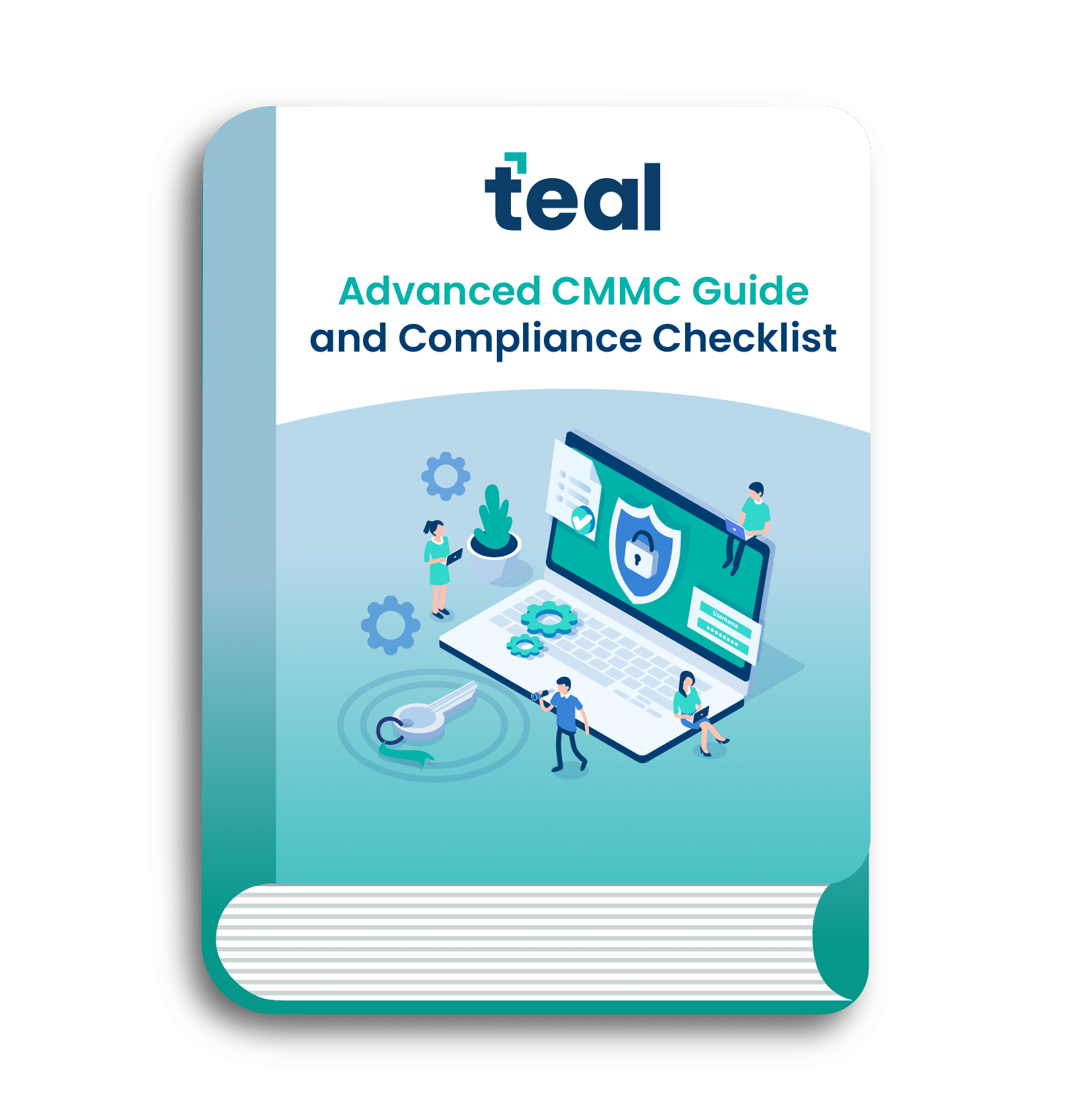Managed IT services for government contractors take the burden of managing complex technology systems off your plate….
Government contractors, especially those working with the Department of Defense (DoD), face many difficult challenges.
To start with, they must navigate a complex web of compliance regulations whose purpose is to ensure cybersecurity readiness, such as Cybersecurity Maturity Model Certification (CMMC) and NIST 800-171.
Keeping all internal and external cybersecurity threats at bay is a huge undertaking, but government contractors have other obstacles to overcome as well, including budget constraints.

Empower your company with CMMC knowledge. This guide covers the process, benefits, maturity levels, and how to prepare for your CMMC audit.
To overcome these challenges, government contractors need reliable, secure, and scalable technology to support their day-to-day operations and help them fulfill their contracts.
Managed service providers (MSPs) can provide and manage technology systems for government contractors. This takes the worries associated with them off their plate, helping them focus on what they do best.
Let’s take a closer look at several specific reasons why defense contractors enjoy working with MSPs.

1. Regulatory Compliance Made Easier
The national security landscape is changing at a rapid pace. It’s shaped by relentless cybersecurity threats coming from state and non-state actors alike.
To address these threats, the government is putting pressure on contractors to improve their cybersecurity controls. How? By requiring them to comply with regulations like CMMC.
For smaller contractors with limited or no IT staff, reaching the required cybersecurity maturity level can be difficult.
An MSP with deep regulatory expertise can evaluate a contractor’s cybersecurity posture and develop a Plan of Action & Milestones (POA&M) that pinpoints exactly what needs to be addressed.
From there, the MSP recommends the right controls and policies, and brings the hands-on expertise required to implement them effectively.

2. Flexibility to Meet Changing Requirements
To reliably win contracts, contractors must demonstrate the ability to meet a wide range of evolving requirements. That’s nearly impossible when relying on rigid, legacy IT systems that can’t scale to handle urgent deadlines or time-sensitive work.
A capable MSP helps contractors modernize by moving from outdated infrastructure to flexible, cloud-based environments. The result is not just stronger compliance and security, but also:
- Greater mobility and collaboration
- Improved disaster recovery
- Cost efficiency
- Virtually limitless scalability
All of this fuels contract readiness and long-term growth. From there, the MSP provides ongoing monitoring across both cloud and on-premises systems.
Just as importantly, the MSP leads proactive technology planning and road-mapping. This ensures contractors not only stay compliant today, but also maintain a competitive advantage as the market and technology evolve.

3. Reduced Total IT Costs
When contracting for the government, it’s paramount to prevent money from getting wasted in order to avoid exceeding the agreed-upon budget. The traditional break-fix IT model often derails due to unpredictable expenses.
MSPs eliminate those surprises by providing predictable, flat-rate pricing, usually per user or device each month. Leveraging economies of scale, they deliver enterprise-grade technology and expert support at a cost point even smaller contractors can manage.
An MSP can also reduce costs and risk by consolidating vendors and centralizing oversight. Fewer external providers mean lower overall spending and less exposure to third-party threats like data breaches. This strengthens both your budget and your security posture.

Partner With an MSP That Understands Your Needs
Balancing IT infrastructure demands with strict cybersecurity regulations is no small task, especially without in-house expertise. Frameworks such as CMMC and NIST 800-171 set the bar high, and failing to meet them can mean lost opportunities and increased risk.
By working with the right managed service provider, contractors can maintain compliance, adapt to shifting requirements, and control IT costs.













